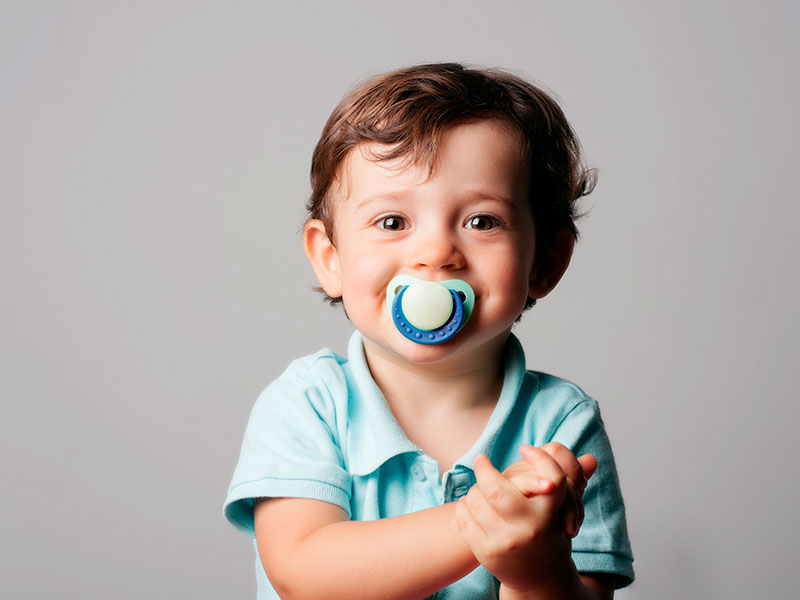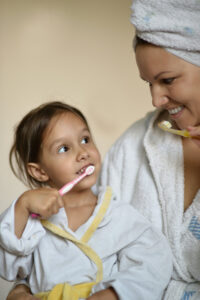As parents, we always want to do what’s best for our children, including when it comes to their oral health.
Pacifiers can be a helpful tool in soothing infants and young toddlers, but when is the right time to wean your child off of them?
At Upbeat Pediatric Dentistry, we understand that pacifiers can provide a sense of security and comfort for young children, but we also know that extended use can lead to dental problems.
Here’s what you need to know about weaning your child off their pacifier:
Most pediatricians recommend weaning your child off their pacifier by the age of 2. At this point, prolonged pacifier use can interfere with speech development and cause dental problems such as an open bite, crossbite, or protruding front teeth.
Continued pacifier use beyond the age of 2 can begin to negatively impact a child’s dental health, leading to misalignment of the teeth and even changes to the shape of the roof of the mouth. Long-term pacifier use can also impact speech development, leading to difficulty with pronunciation and articulation.
What are the signs that it’s time to wean?
If your child is older than 2 and still using a pacifier, it may be time to start weaning. Here are some signs to look for:
- Your child only falls asleep with a pacifier in their mouth;
- They become upset when the pacifier is taken away;
- Your child is using the pacifier for longer periods of time.
How to wean your child off their pacifier
If you’re struggling with weaning your child off their pacifier, there are a few strategies that may help. Gradual reduction of pacifier use, such as only using it for naps and bedtime, can be a helpful approach. You can also try to replace the pacifier with a special toy or blanket that your child can use for comfort.
Here are some tips to help you:
- Limit pacifier use to certain times of day: Begin by limiting pacifier use to nap time and bedtime only;
- Shorten pacifier use: Gradually decrease the amount of time your child uses their pacifier each day;
- Offer other comfort tools: Introduce other comfort items such as a stuffed animal or blanket to replace the pacifier;
- Be patient and persistent: Weaning your child off their pacifier can take time and patience. Be consistent with your approach and offer encouragement along the way.
What are the consequences to weaning after the recommended age?
If you take too long to wean your child off their pacifier, they may develop oral health problems such as misaligned teeth, speech delays, and even changes in the shape of their palate.
Long-term pacifier use can also affect your child’s jaw and facial structure, causing an overbite or underbite. In addition to the physical effects, prolonged pacifier use can also lead to emotional dependence and difficulty in self-soothing. This can lead to sleep disturbances and behavioral issues.
It’s important to remember that weaning off the pacifier can be challenging for both you and your child, but with patience, consistency, and encouragement, you can help your child make the transition successfully.
In need of further guidance on this subject?
If you have any concerns about your child’s pacifier use or dental health, don’t hesitate to schedule an appointment at Upbeat Pediatric Dentistry! Our team of experienced professionals is here to support you and your child’s oral health needs.
Remember, by weaning your child off their pacifier at the right time, you can help promote healthy dental and speech development.







